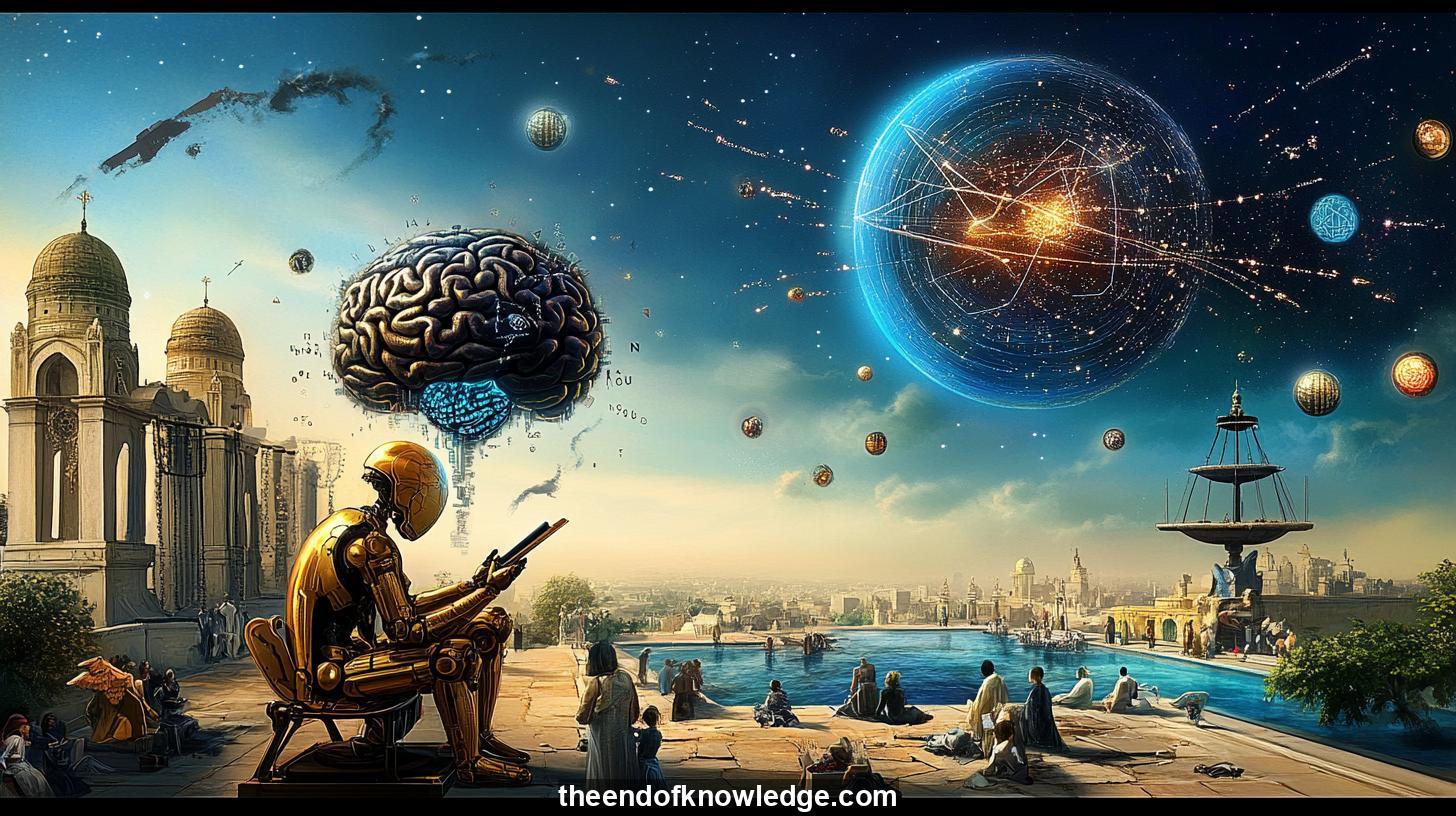 >
>
Concept Graph, Resume & KeyIdeas using DeepSeek R1 :
Resume:
The Vatican document discusses the intersection of artificial intelligence (AI) and human dignity, emphasizing the uniqueness of human creativity and consciousness. It highlights the ethical concerns surrounding AI, such as dehumanization and social inequality, urging a balanced approach to technological advancement. The church advocates for AI as a tool to enhance human life while preserving moral and spiritual values. The discussion explores AI's potential to transform society and the need for ethical guidelines to ensure it serves humanity responsibly. The Vatican's stance underscores the importance of maintaining human dignity in the face of rapid technological change.30 Key Ideas:
1.- The Vatican document explores AI's implications on human dignity and creativity.
2.- AI is viewed as a tool that should enhance human life without diminishing spiritual values.
3.- Ethical concerns include dehumanization and social inequality due to AI's impact.
4.- The church emphasizes the need for ethical guidelines in AI development and use.
5.- Human creativity and consciousness are seen as unique, influenced by divine design.
6.- AI's potential to transform society necessitates a balanced approach to technological advancement.
7.- The document highlights the importance of maintaining moral values in AI integration.
8.- AI raises questions about human identity and the role of technology in society.
9.- The Vatican advocates for AI to serve humanity while respecting ethical boundaries.
10.- The discussion explores AI's role in education, medicine, and communication.
11.- Ethical considerations must address the risks of AI surpassing human intelligence.
12.- The church's stance on AI reflects its commitment to human dignity and moral principles.
13.- AI's development should prioritize human well-being and ethical responsibility.
14.- The document encourages a dialogue between technology and theology.
15.- AI's impact on employment and social structures is a key concern.
16.- The Vatican calls for a global response to the ethical challenges posed by AI.
17.- AI's potential to solve global issues is acknowledged alongside its risks.
18.- The church's role includes guiding the integration of AI into society responsibly.
19.- The document emphasizes the need for transparency in AI decision-making processes.
20.- AI's influence on human relationships and culture is a critical area of discussion.
21.- The Vatican highlights the importance of human values in shaping AI's future.
22.- AI's ethical development must consider diverse cultural and religious perspectives.
23.- The document addresses the potential for AI to exacerbate social inequalities.
24.- The church advocates for AI policies that promote inclusivity and fairness.
25.- The discussion explores the tension between technological progress and human values.
26.- AI's ethical implications require a collaborative global response.
27.- The Vatican's document serves as a call to action for responsible AI innovation.
28.- The church's perspective on AI aligns with its mission to protect human dignity.
29.- The document encourages ongoing dialogue between faith and technology communities.
30.- The Vatican's stance on AI reflects a commitment to ethical and moral leadership.
Interviews by Plácido Doménech Espí & Guests - Knowledge Vault built byDavid Vivancos 2025